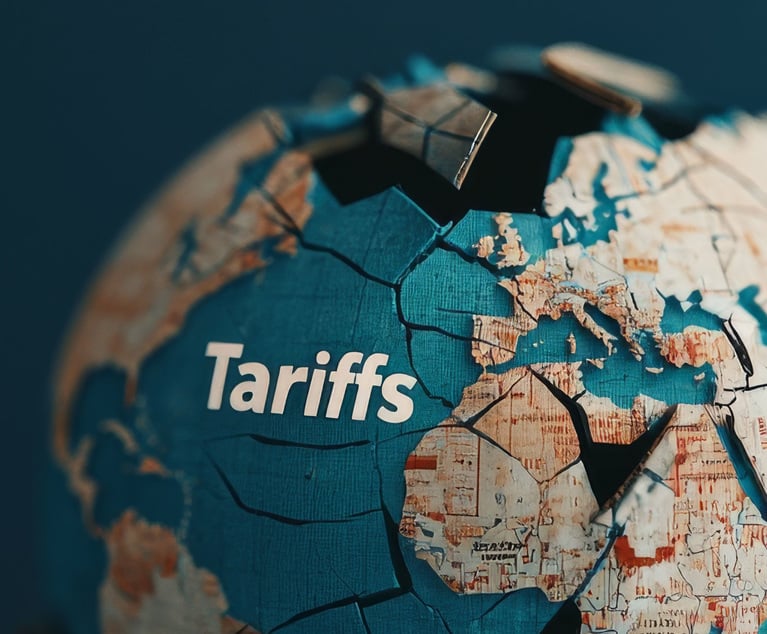 Credit: Blue Planet Studio/Adobe Stock
Credit: Blue Planet Studio/Adobe Stock The U.S. Senate's Rule Allowing Filibusters Is Unconstitutional and Stands in the Way of Meaningful Action on Environmental Challenges
The failure to update the Clean Air Act and other environmental statutes, or to otherwise address climate change and a host of other problems can be traced in large part to the filibuster.
October 26, 2022 at 10:00 AM
9 minute read
Examples abound of how the Senate's "filibuster" rule has led to legislative paralysis, including on climate change and other environmental challenges. For example, earlier this year, the U.S. Supreme Court issued the final word on long-running litigation over the scope of the Environmental Protection Agency's authority to regulate emissions of greenhouse gases from power plants under the Clean Air Act. In West Virginia v. EPA, the Court embraced a narrow view of the statute, severely constraining the Biden administration's ability to tackle climate change via regulation of the energy sector. In another era, West Virginia might have prompted swift action by a Congress controlled by the President's party to update the Act to give the EPA every available tool to curb greenhouse gas emissions. Or Congress might have enacted a new regulatory regime, like the failed 2010 cap and trade bill that had the support of the public, the majority of Senators and House members, and President Obama. The failure to update the Clean Air Act and other environmental statutes, or to otherwise address climate change and a host of other problems can be traced in large part to the filibuster.
Senators have used the filibuster (or the threat of one) with unprecedented frequency over the last two decades to block a wide range of important and popular legislation and to frustrate the legislative priorities of winning majorities including on gun control, immigration, voting rights and climate change. With the exception of budget bills and judicial and executive appointments, Senate activity has slowed to a crawl, particularly since 2009, with a minority of Senators wielding de facto veto power through the filibuster. Contrary to popular myth (and what proponents of the filibuster want you to think), this state of affairs has no basis in the U.S. Constitution or history. It's time to take a fresh look at how the filibuster is hobbling efforts to address climate change and other important national emergencies and the troubling constitutional issues at stake.
This content has been archived. It is available through our partners, LexisNexis® and Bloomberg Law.
To view this content, please continue to their sites.
Not a Lexis Subscriber?
Subscribe Now
Not a Bloomberg Law Subscriber?
Subscribe Now
NOT FOR REPRINT
© 2025 ALM Global, LLC, All Rights Reserved. Request academic re-use from www.copyright.com. All other uses, submit a request to [email protected]. For more information visit Asset & Logo Licensing.
You Might Like
View All
Neighboring States Have Either Passed or Proposed Climate Superfund Laws—Is Pennsylvania Next?
7 minute read
EPA Nominee Zeldin Says Climate Change Is Real, Agency Shouldn't Suffocate Economy

'Headaches,' Opportunities Ahead for Lawyers Advising Foreign Businesses, Attorneys Say
4 minute readLaw Firms Mentioned
Trending Stories
- 1Who Is Nicholas J. Ganjei? His Rise to Top Lawyer
- 2Delaware Supreme Court Names Civil Litigator to Serve as New Chief Disciplinary Counsel
- 3Inside Track: Why Relentless Self-Promoters Need Not Apply for GC Posts
- 4Fresh lawsuit hits Oregon city at the heart of Supreme Court ruling on homeless encampments
- 5Ex-Kline & Specter Associate Drops Lawsuit Against the Firm
Who Got The Work
J. Brugh Lower of Gibbons has entered an appearance for industrial equipment supplier Devco Corporation in a pending trademark infringement lawsuit. The suit, accusing the defendant of selling knock-off Graco products, was filed Dec. 18 in New Jersey District Court by Rivkin Radler on behalf of Graco Inc. and Graco Minnesota. The case, assigned to U.S. District Judge Zahid N. Quraishi, is 3:24-cv-11294, Graco Inc. et al v. Devco Corporation.
Who Got The Work
Rebecca Maller-Stein and Kent A. Yalowitz of Arnold & Porter Kaye Scholer have entered their appearances for Hanaco Venture Capital and its executives, Lior Prosor and David Frankel, in a pending securities lawsuit. The action, filed on Dec. 24 in New York Southern District Court by Zell, Aron & Co. on behalf of Goldeneye Advisors, accuses the defendants of negligently and fraudulently managing the plaintiff's $1 million investment. The case, assigned to U.S. District Judge Vernon S. Broderick, is 1:24-cv-09918, Goldeneye Advisors, LLC v. Hanaco Venture Capital, Ltd. et al.
Who Got The Work
Attorneys from A&O Shearman has stepped in as defense counsel for Toronto-Dominion Bank and other defendants in a pending securities class action. The suit, filed Dec. 11 in New York Southern District Court by Bleichmar Fonti & Auld, accuses the defendants of concealing the bank's 'pervasive' deficiencies in regards to its compliance with the Bank Secrecy Act and the quality of its anti-money laundering controls. The case, assigned to U.S. District Judge Arun Subramanian, is 1:24-cv-09445, Gonzalez v. The Toronto-Dominion Bank et al.
Who Got The Work
Crown Castle International, a Pennsylvania company providing shared communications infrastructure, has turned to Luke D. Wolf of Gordon Rees Scully Mansukhani to fend off a pending breach-of-contract lawsuit. The court action, filed Nov. 25 in Michigan Eastern District Court by Hooper Hathaway PC on behalf of The Town Residences LLC, accuses Crown Castle of failing to transfer approximately $30,000 in utility payments from T-Mobile in breach of a roof-top lease and assignment agreement. The case, assigned to U.S. District Judge Susan K. Declercq, is 2:24-cv-13131, The Town Residences LLC v. T-Mobile US, Inc. et al.
Who Got The Work
Wilfred P. Coronato and Daniel M. Schwartz of McCarter & English have stepped in as defense counsel to Electrolux Home Products Inc. in a pending product liability lawsuit. The court action, filed Nov. 26 in New York Eastern District Court by Poulos Lopiccolo PC and Nagel Rice LLP on behalf of David Stern, alleges that the defendant's refrigerators’ drawers and shelving repeatedly break and fall apart within months after purchase. The case, assigned to U.S. District Judge Joan M. Azrack, is 2:24-cv-08204, Stern v. Electrolux Home Products, Inc.
Featured Firms
Law Offices of Gary Martin Hays & Associates, P.C.
(470) 294-1674
Law Offices of Mark E. Salomone
(857) 444-6468
Smith & Hassler
(713) 739-1250







